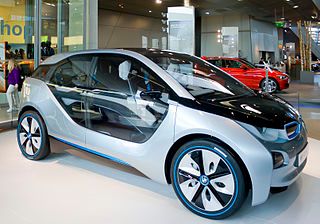From Guest Blogger Roger Abert: Eco Cars — The Promotion of Patents to Save the Environment

Hybrid cars use at least two different, frequently Motors power systems of petrol and electric motors for propulsion more efficient with lower fuel consumption and lower CO2 emissions. More than half of all new hybrid cars in the United States patents have been issued in the past 10 years.
However, the landscape of patents is much more complicated when you consider that hybrid vehicles require a complex system of technology integration that ensures that both power systems work to achieve maximum energy efficiency. For example: the control technology system that determines when to use each energy system to achieve greater efficiency is protected by patents. The patented technology of batteries is helping to increase the effective number of kilometers per liter that these vehicles can travel. A group of researchers has discovered the way to increase the speed of charging the batteries, which reduced the time from hours to seconds. These technologies promise to solve all the current concerns of consumers with regard to electric cars, but only because investors are funding research programs in the hope of profit on their investment in the form of a product that can release to the market.
Electric and hybrid vehicles are not the only options that visionaries are trying to develop. Vehicles using alternative fuels offer the potential advantages of renewable sources, minor effect gas emissions greenhouse CO2 and greater efficiency in energy consumption. Ethanol derived from plant waste materials, natural gas from waste converters, the hydrogen from the water and the biodiesel of soybeans, are options that have the potential to significantly reduce the negative effects that cars, trucks and other transport vehicles have on the environment. He has been proposed even the use of air as a propulsion system for vehicles, compressed air may be an efficient generation of energy technology. Still, none of these new ways to make cars work is likely to reach the market without the effort of the innovators of patents to protect the capital that risks in the process of research and development.
Who is developing these technologies? All manufacturers of automobiles in the world have implemented programs on ecological technologies, many of them in collaboration with universities around the world. But there is still place for emerging companies to dig its own niche in the growing and lucrative market of ecological cars. One such company, Tesla Motors, California, is the first company to produce a fully electric vehicle fleet. This company obtained patents for technologies that improved the range and the performance of electric cars, to the point of rival and even surpass the traditional sports car with a petrol engine. While the prospect of ecological cars seems promising, patents will continue to play a crucial role in its development.
Author: Roger Abert is an IT professional and writer, editor at biggest Japanese Used Cars Exporting Company. Follow him on Google+.
